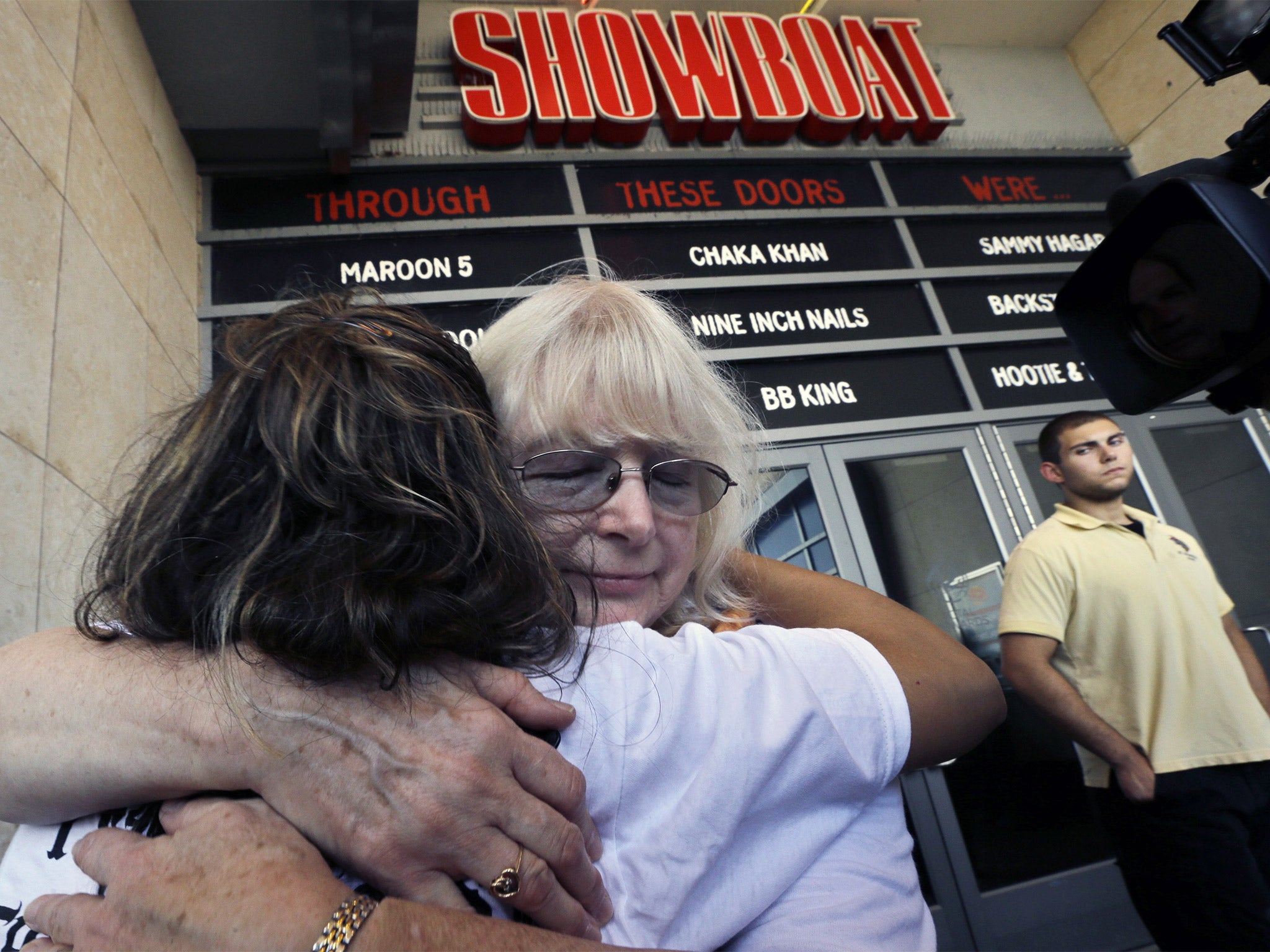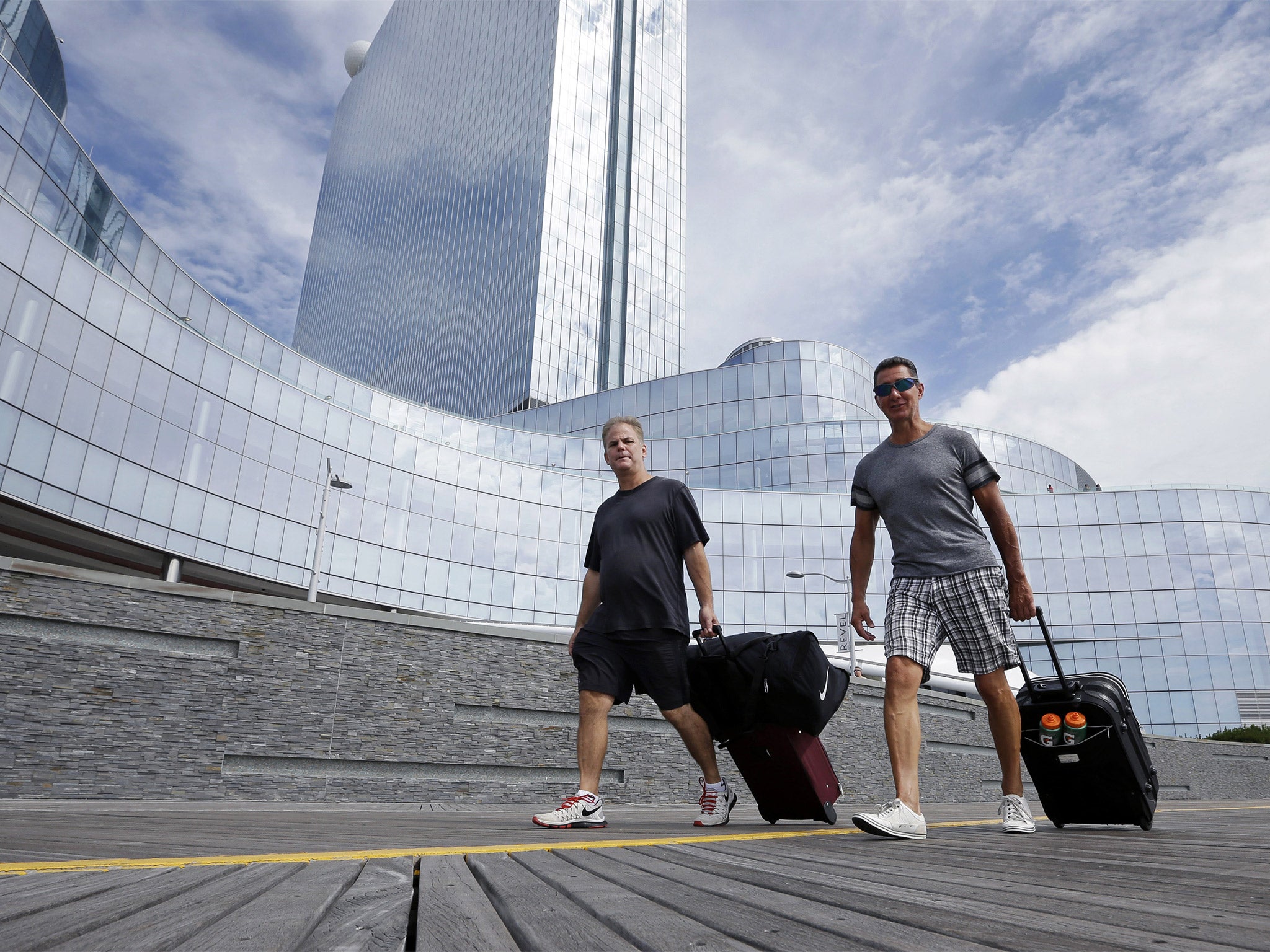Atlantic City’s biggest gamble ends as new casinos close down due to economic implosion in the gaming industry
New Jersey Governor Chris Christie's hopes of a Las Vegas-style destination resort have been left in tatters

Your support helps us to tell the story
From reproductive rights to climate change to Big Tech, The Independent is on the ground when the story is developing. Whether it's investigating the financials of Elon Musk's pro-Trump PAC or producing our latest documentary, 'The A Word', which shines a light on the American women fighting for reproductive rights, we know how important it is to parse out the facts from the messaging.
At such a critical moment in US history, we need reporters on the ground. Your donation allows us to keep sending journalists to speak to both sides of the story.
The Independent is trusted by Americans across the entire political spectrum. And unlike many other quality news outlets, we choose not to lock Americans out of our reporting and analysis with paywalls. We believe quality journalism should be available to everyone, paid for by those who can afford it.
Your support makes all the difference.When the year began in Atlantic City, the one-time gambling mecca was home to a dozen casinos. By Tuesday morning, three had closed, while a fourth was ready to shut its doors.
Revel Casino Hotel, labelled a “game changer” by the New Jersey Governor Chris Christie when it opened in April 2012, closed early on Tuesday as part of an economic implosion in the historic city’s gambling industry.
Originally expected to be the crown jewel of casino redevelopment, shepherded by the pugnacious Governor and 2016 presidential hopeful, Revel now stands on the north end of the boardwalk as the shining $2.4bn face of failure for the down-on-its-luck city. Its closure, at 6am, came a day after its casino neighbour Showboat shut down, with almost 5,000 jobs disappearing within 24 hours.
Later on Tuesday morning, state regulators gave the final go-ahead for the closure of Trump Plaza, the casino that Donald Trump sued to have his name removed from, on 16 September, another body blow to Mr Christie’s hopes for reshaping Atlantic City into a Las Vegas-style destination resort with higher-end casinos lining the boardwalk and across the marina on the western end of town.
Mr Christie has called a bipartisan summit on Monday to discuss a way forward for the industry and the city’s economic future. Many of the issues at play are endemic to the local economy and broader national trends – the recession cut gambling receipts, and the expansion of casinos in neighbouring Pennsylvania, Maryland and Delaware cut the number of visitors.
The city’s gambling receipts hit $5.2bn (£3.2bn) in 2006, about the same as Las Vegas, but this year those receipts will be about half that, according to William Pascrell, a lobbyist representing gambling interests.

“Revel is not the problem, Revel revealed the underlying problem,” said Bob McDevitt, president of Unite Here Local 54, the labour union with about 9,000 members who work in casinos.
Today, thousands of newly redundant casino workers were expected to turn out at the Atlantic City Convention Centre for a mass unemployment filing. More than 100 work stations were set up to accommodate the newly jobless dealers, cocktail servers and other workers.
For Mr Christie, Revel’s closure is a particular embarrassment. Two years ago, the Governor hailed the newest addition to the boardwalk as a “turning point” for the city. When initial investors bailed out, his administration guaranteed $261m in tax incentives. At its opening, Christie even made a plea for his state’s favourite son, Bruce Springsteen, to play a concert at Revel.
Instead, by late Monday night, the casino had taken on the appearance of the rock star’s ballad “Atlantic City”, in which the characters search for jobs and consider crime as a way out: still impeccably clean, the casino floor had a post-apocalyptic feel to it. Dozens of slot machines were empty. Blackjack tables were roped off. Employees already not working huddled around the circular bar, where bartenders had already run out of most high-end drinks.
Some workers clung to the hope that the casino would re-emerge from bankruptcy proceedings and become attractive to a potential buyer. Others shrugged off that as naive talk. “He gave $260m for this place to open. This place was obviously nothing good,” said Jean Smith, a cab driver lined up outside the casino six hours before it closed.
Mr Christie’s advisers have battled the perception that taxpayers’ money went to the project. The deal was structured in a manner that the tax benefits accrued only when the casino turned a profit – which it never did. “To be clear, Revel has not received one penny of its [tax] award,” the state Economic Development Authority wrote in a report. That’s little comfort to the roughly 2,900 employees from Revel who lost their jobs.
The casino industry’s downturn happened as most of the rest of the Jersey Shore finished a successful summer, with revenue expected to be up by 4 per cent over last year.
© The Washington Post
Join our commenting forum
Join thought-provoking conversations, follow other Independent readers and see their replies
Comments